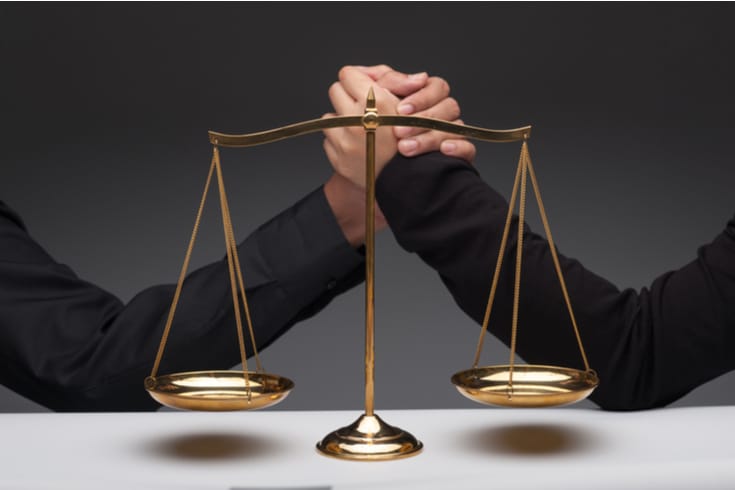Legal Issues with YouTuber Giveaway Videos: An Explanation

YouTubers often conduct giveaway campaigns in their videos with the aim of increasing their channel subscribers and video views.
These giveaway campaigns can be carried out for various reasons, such as attracting new viewers or expressing gratitude to existing viewers.
From a viewer’s perspective, the chance to receive a gift is a delightful opportunity. However, from a YouTuber’s perspective, there is a risk that such actions could be deemed legally problematic.
In this article, we will discuss the issues that YouTubers may face when conducting giveaway campaigns.
What is YouTube?
YouTube is a video sharing site that began its services in December 2005.
While there are various types of video sharing sites, YouTube is the largest in the world.
Originally, the service was provided by YouTube, Inc., but it was later acquired by Google, which now provides the service.
What is a YouTuber?
A YouTuber refers to an individual or group who consistently posts videos on YouTube.
In recent years, the popularity of being a YouTuber as a profession has increased, and it has become a top-ranking occupation that children aspire to be.
Furthermore, recently, not only on YouTube, but YouTubers are also getting more opportunities to appear on television and radio, and their activities outside of YouTube are becoming more noticeable.

What is a Giveaway Event Conducted by YouTubers?
A giveaway event conducted by YouTubers refers to a campaign where YouTubers offer gifts to their viewers.
The purpose of these giveaway events varies. They can be used to express gratitude to channel subscribers, or to attract new subscribers and viewers, among other objectives.
There are various methods for conducting a giveaway event. One common method is for the YouTuber to post a video about the giveaway on their YouTube channel and ask viewers to express their intention to participate in the giveaway by posting a comment in the comment section of the video. Another method involves using social media platforms like Twitter, where the YouTuber posts about the giveaway on their own social media account and asks participants to post a comment along with an image that shows they are subscribed to the channel.
Potential Issues with Giveaway Campaigns
There are two main issues that can arise in relation to giveaway campaigns conducted by YouTubers.
The first issue is related to the law. Specifically, the problem lies in the relationship with the Japanese Act against Unjustifiable Premiums and Misleading Representations (hereinafter referred to as the “Premiums and Representations Act”).
The second issue is related to YouTube’s terms of service.
If you violate YouTube’s terms of service, your videos may be removed or your account may be suspended.
In the worst-case scenario, your account could be deleted, rendering all your previous efforts null and void, so caution is necessary.
Relationship with the Japanese Premiums and Representations Act
Violating the Japanese Premiums and Representations Act could potentially result in penalties.
In the following, we will explain the circumstances under which a giveaway could potentially violate the Japanese Premiums and Representations Act.
What is the Japanese Premiums and Representations Act?
The purpose of the Japanese Premiums and Representations Act is defined in Article 1 of the Act as follows:
(Purpose)
Article 1: The purpose of this Act is to protect the interests of general consumers by preventing the attraction of customers through unfair premiums and representations related to the transactions of goods and services, and by regulating and prohibiting acts that may hinder the autonomous and rational choices of general consumers.
The purpose of the Japanese Premiums and Representations Act is to protect the interests of general consumers by preventing the attraction of customers through unfair premiums and representations, and by regulating and prohibiting acts that may hinder the autonomous and rational choices of consumers.
What are the premiums regulated by the Japanese Premiums and Representations Act?
In order for a giveaway to be subject to the regulations of the Japanese Premiums and Representations Act, the giveaway must qualify as a premium.
The definition of premiums is defined in Article 2, Paragraph 3 of the Japanese Premiums and Representations Act as follows:
3: In this Act, “premiums” refer to goods, money, or other economic benefits provided by a business operator in conjunction with the transactions of goods or services they supply (including real estate transactions), regardless of whether the method is direct or indirect, or whether it is by lottery, and are those designated by the Prime Minister.
Among the above, the important point is “in conjunction with transactions”.
If it cannot be said to be “in conjunction with transactions”, the giveaway does not qualify as a “premium”, and therefore will not be subject to the regulations of the Japanese Premiums and Representations Act.
Cases where the plan is widely announced, where the purchase of goods or services or visit to a store is not a condition, where anyone can easily apply, and where goods or money are provided by lottery, are called open lotteries and are not subject to the regulations of the Japanese Premiums and Representations Act.
Relationship between YouTube Giveaways and the Japanese Premiums and Representations Act
When a YouTuber conducts a giveaway, in many cases, it is considered an open lottery and is not subject to the regulations of the Japanese Premiums and Representations Act.
However, for example, in cases where only viewers who have purchased a product sold by the YouTuber are eligible for the giveaway, or where you can participate in the giveaway if you become a paid member of a fan site operated by the YouTuber, it may not be considered an open lottery and may be subject to the regulations of the Japanese Premiums and Representations Act.
Even if you are subject to the regulations of the Japanese Premiums and Representations Act, you can still conduct a giveaway as long as you do not violate the Act.

Relationship with YouTube’s Terms and Conditions
Even in cases that do not violate the Japanese Prize Display Act, there may be instances where YouTube’s terms and conditions are breached.
It is important to be cautious as violating YouTube’s terms and conditions could potentially result in your account being banned.
https://monolith.law/youtuber-vtuber/youtube-terms-of-service-important-points[ja]
https://monolith.law/youtuber-vtuber/entertainment-video-youtube-terms-of-use[ja]
Structure of YouTuber’s Terms and Conditions
YouTube has various terms and conditions in place, which can be broadly divided into terms of use, YouTube community guidelines, policies, security and copyright policies (hereinafter referred to as “terms and conditions”).
The matters concerning the terms and conditions are stipulated in the YouTube terms of use as follows:
Applicable Terms
The use of this service is subject to these terms, YouTube community guidelines and policies, security, copyright policies (collectively, “this agreement”). This agreement may be updated from time to time. If you become an advertiser or sponsor of this service, or if you incorporate paid promotions into your content, the advertising policy for advertisers will also be included in this agreement. Other links and reference materials mentioned in these terms are for the purpose of providing information only and do not constitute this agreement.
From the above, it can be inferred that the terms and conditions are all contractual matters applicable to Google and YouTube users.
However, while all the terms and conditions are considered contractual matters, the priority of their application is not clear from the description in the YouTube terms of use.
Does a Giveaway Violate the “Policy on False Engagement”?
Among YouTube’s terms and conditions, there is a policy that could potentially conflict with giveaway campaigns, known as the “Policy on False Engagement”.
The “Policy on False Engagement” prohibits the following actions and content:
- Using automated systems or showing videos to unsuspecting viewers to artificially inflate views, likes, comments, or other statistical numbers.
- Content that solely aims to attract viewers for engagement (views, likes, comments, etc.).
Specific examples of content that solely aims to attract viewers for engagement include “promoting businesses that exist solely for the purpose of artificially increasing channel engagement numbers”.
Regarding the judgment of whether the above prohibited actions and content apply, the “Policy on False Engagement” stipulates, “YouTube considers engagement legitimate if it is the result of genuine user interaction with the content. Engagement is considered illegitimate, for example, if it is the result of coercion or fraudulent behavior, or if the sole purpose of the engagement is to gain financial benefit.”
According to the provisions of this “Policy on False Engagement”, the content related to giveaways that are prohibited from being posted on YouTube is limited to extremely exceptional content that solely aims to gain views or likes. Other content is not considered to violate the “Policy on False Engagement”.
Therefore, even if a YouTuber posts a video about a giveaway, if it is a video that aligns with the viewers’ interests and preferences and is not recognized as content that solely aims to gain views or likes, it is not considered to violate the “Policy on False Engagement”.

Does a Giveaway Violate YouTube’s Terms of Service?
As previously mentioned, giveaways do not violate the “Policy on False Engagement,” except for extremely rare content that solely aims to gain views or likes. However, YouTube has stricter regulations in its terms of service, as follows:
There are restrictions on the use of this service, and the following actions are prohibited:
6. Distorting the results of original user engagement or instigating such distortion. For example, paying users or providing incentives to increase video views, likes, dislikes, channel subscribers, or manipulating metrics in any other way.
The above clause in YouTube’s terms of service prohibits paying users with the aim of increasing views or ratings. Compared to the “Policy on False Engagement,” which prohibits content aimed solely at gaining views, this clause covers a broader range of conflicts.
Regarding giveaways, it cannot be denied that the purpose includes posting videos about the giveaway to increase video views, likes, dislikes, channel subscribers, or manipulating metrics in any other way. Therefore, at least formally, it is highly likely that this could violate YouTube’s terms of service.
However, while there are many YouTubers conducting giveaways, within the scope of our firm’s review, we have not found any cases where a giveaway was deemed to violate YouTube’s terms of service. Therefore, it is believed that the likelihood of a giveaway being judged as a violation of YouTube’s terms of service is not high.
As mentioned earlier, the priority of applying terms and conditions is not clear in YouTube’s terms of service. However, the “Policy on False Engagement” is considered to be positioned as an operational policy of YouTube’s terms of service. Unless it violates the “Policy on False Engagement,” it is believed that the likelihood of being judged as a violation of YouTube’s terms of service is not high.
As a result, it is believed that the likelihood of a YouTuber being judged as violating the “Policy on False Engagement” and YouTube’s terms of service is not high, except for extremely rare content that solely aims to gain views or likes when posting videos about a giveaway.
Summary
We have explained the potential issues when conducting a giveaway event, targeting YouTuber agencies and YouTubers themselves.
As explained in this article, in most cases, it is highly likely that conducting a giveaway event will not violate the ‘Japanese Premiums and Representations Act’. Furthermore, it is generally considered that there is a low likelihood of violating the ‘Policy on False Engagement’ and YouTube’s Terms of Service. However, if the content is deemed to be extremely exceptional, aiming solely to gain views and likes, there is a possibility that it may be judged as violating the ‘Policy on False Engagement’ and YouTube’s Terms of Service.
We recommend that YouTubers who are considering conducting a giveaway event consult with a lawyer who has specialized knowledge.
Introduction to Our Firm’s Measures
Monolith Law Office is a legal office with high expertise in IT, particularly in the intersection of the internet and law. In recent years, we have been handling a large number of advisory cases for YouTubers and VTubers, who are gaining popularity online. The need for legal checks in channel management and contract-related matters is increasing. At our firm, attorneys with specialized knowledge are in charge of these measures.
Please refer to the following article for more details.
Category: Internet





















